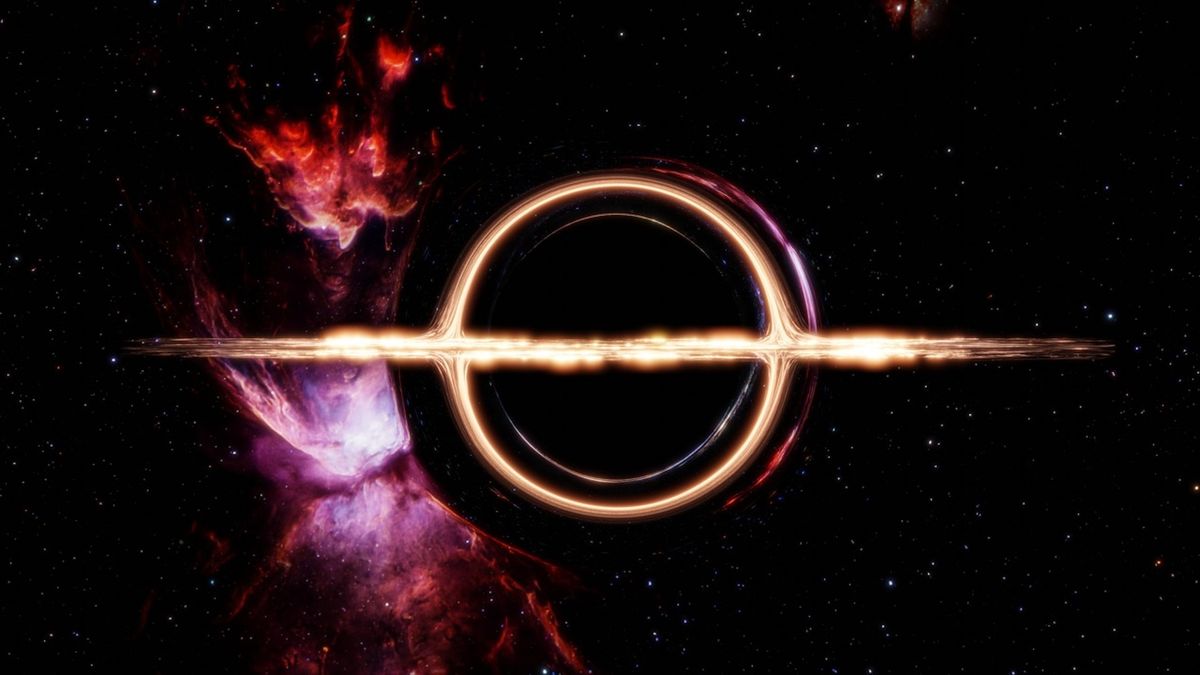'Einstein's equations need to be refined': Tweaks to general relativity could finally explain wha...

```html
Rethinking Black Holes: Quantum Gravity Eliminates Singularities
The Paradox of Infinite Density
Black holes, those cosmic enigmas, have long puzzled physicists with their theoretical singularities – points of infinite density where the known laws of physics break down. Imagine space, time, and matter crushed into oblivion! This catastrophic scenario, predicted by Einstein's theory of general relativity, poses a significant problem for scientific predictability.
"If singularities were to really exist in our universe, it would be catastrophic for science," explains Robie Hennigar, a postdoctoral researcher at Durham University. "We could no longer use the equations of physics to predict the future from the past and present."
Correcting Einstein with Quantum Gravity
While Einstein's theory of general relativity has been incredibly successful in explaining many cosmic phenomena, its incompatibility with quantum mechanics, particularly regarding singularities, suggests the need for refinement. Enter quantum gravity, a concept attempting to bridge the gap between these two fundamental theories.
Quantum gravity predicts a constant dance of particle creation and annihilation, along with fluctuations in all fields, including gravity. A recent study published in *Physics Letters B* proposes incorporating an infinite series of additional terms into Einstein's equations to account for these quantum effects. "Different approaches to quantum gravity will place different importance on different terms in the equations," states Hennigar, "but they all suggest that Einstein's equations need to be refined.”
A New Picture of the Black Hole Core
By applying these modifications, researchers have discovered a fascinating possibility: the singularity vanishes! Instead of an infinitely dense point, the black hole's core becomes a region of highly curved, but finite, spacetime. This groundbreaking finding offers a potential solution to the long-standing singularity paradox.
Putting the Theory to the Test
While mathematically elegant, this new model requires observational evidence. "The absence of singularities itself is hard to test experimentally," admits Pablo Cano, a postdoctoral researcher at the University of Barcelona, "because it would occur inside a black hole, or at the very beginning of the universe.” However, the team suggests exploring the subtle effects of this modified gravity in strong gravitational fields, such as those generated by colliding black holes or imprinted in primordial gravitational waves from the early universe.
Gravitational waves from black hole mergers offer a unique opportunity to witness the interplay of extreme gravity, potentially revealing the signatures of this refined theory. Similarly, studying the echoes of the Big Bang may hold clues to the influence of modified gravity on cosmic inflation.
Next Steps in Unraveling the Mystery
The research team continues to explore the implications of their findings, including whether these singularity-free black holes can form naturally from gravitational collapse. Pablo Bueno, a research fellow at the University of Barcelona, reveals, "We have recently shown that the collapse of a certain type of matter gives rise, within this framework, to the formation of these regular black holes.”
Further investigation may even lead to a revolutionary understanding of the universe's origins, replacing the traditional Big Bang with an endless cycle of expansion and contraction - a cosmic dance of creation and destruction.